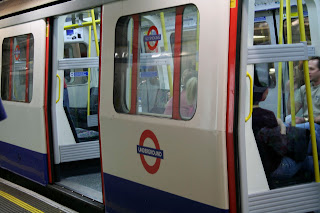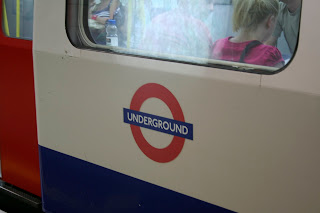Diving…part Three
Stow all your gear away on the boat. Don’t leave your scuba gear dumped in a heap in the floor when you get back from your dive. It’s not good for the gear and it’s dangerous for you and others who might trip over it. Scuba gear is heavy and potentially dangerous if not handled and stored correctly.
Debrief with your guide and buddy. Discuss how the dive went and make notes on what you can improve next time to ensure maximum fun and safety. Keep a note of the weight you used. This can help you on your next dive to help get your weighting correct.
If you feel strange, let others know. Don’t keep it to yourself if you feel strange after a dive. Let others know. Many people feel tired out because they are simply not used to the exertion of physical exercise. If you feel anything else, tell your guide.
Diving…Part Two
Planning a Dive Vacation?
Make sure you’re fit to dive. If you’ve never dived before, you should have a medical examination in your home country before you go traveling to ensure you’re fit to dive. If you’re generally fit and healthy, there should be no problem. You will be required to sign a medical statement before learning to dive.
Listen to your instructor or dive guide. Once you’re on the dive boat, it’s important to listen to your instructor or guide, no matter how experienced you are. Plan Your Dive, Dive Your Plan is the number one rule of dive preparation. You need to follow your instructor’s brief on where you’re going, the route you will follow and what you need to watch out for.
Double check all of your scuba gear. En route to the dive site you will need to set up all your scuba gear. Take your time and double check everything is working. If you are not sure about anything, don’t be embarrassed to ask your guide or instructor.
Make sure you do your buddy check. Doing the buddy check of each other’s scuba gear is extremely important before you get in the water to make sure neither of you have missed anything. Introduce yourself to your buddy beforehand as well, so you can get to know each other a little. It’s better for you both safety wise and it can also be the start of a great friendship!
San Francisco Skyline
Tips to Deal With Jet Lag
Jet lag occurs due to disruption of your body’s circadian rhythms when traveling rapidly two or more time zones from home. Jet lag has nothing to do with the duration of your flight, but rather the distance traveled from east to west. For example, the long flight from New York City to Santiago, Chile would not cause jet lag, but flying from New York to Seattle might.
Jet lag is more severe when traveling west to east, possibly because most people find it easier to stay up late and catch up with local time than to get up early and fall back.
Some of us are lucky enough that we don’t experience jet lag, or experience much lesser effects than other people. If you are susceptible, though, here are some symptoms you can expect:
· Loss of appetite, nausea, digestive problems
· Headache, sinus irritation
· Fatigue, irregular sleep patterns, insomnia
· Disorientation, grogginess, irritability
· Mild depression
Recovery times of one day per time zone traveled eastward and one day per one and a half time zones traveled westward are common. Some people recover more quickly than others.
If you have diabetes, a heart condition, or another health condition that requires regular monitoring and/or medication, plan well in advance. Consult your doctor, and develop a strategy to handle the time change.
For any trip longer than a few days, you’ll enjoy your trip more if you gradually alter your schedule several weeks in advance of travel. Move your daily activities forward or back an hour three to four weeks before flying. Add on another hour of time change each week, and before you know it, you’ll be much better acclimated to your destination time.
Keep to your exercise routine, take walks during your flight, and drink plenty of water. Avoid caffeine and alcohol the day before and after your flight, because both can dehydrate you and further disrupt your sleep cycle. Avoid sleeping pills. Forcing your body to in this way sleep won’t help it adjust, and worse, sleeping pills can be addictive.
While the jury is still out, some experts are recommending that the over-the-counter substance Melatonin reduces the effects of jet lag. Melatonin is a hormone that is secreted into the blood stream when it’s time to sleep. The pills are in health food stores, but have not yet received official FDA approval. Melatonin may have undesirable side effects, and its effectiveness varies greatly among different individuals. Ask your doctor about Melatonin and jet lag.
Use Your Binocculars While Flying
Baking Soda Uses When Traveling
Don’t Speak the Language?
Thinking of traveling and don’t know the language? Here are some simple things that may help.
Bring along a small cheat sheet
Make an index card, or write the list inside the cover of my dictionary or guidebook, of words you are likely to see on signs, especially those that have opposites, such as:
in, out
up, down
exit, enter
push, pull
wait, go”
Go back to school
Sign up for a class at your local community college. You can always continue with tapes. But it really helps to understand how all the grammar works and how to compose sentences.
Pave your way with a smile
Remember that a smile is well understood in either language. Many do speak English and are more than happy to attempt English if you’re friendly and attempt at least please and thank you in the local language.
Master basic phrases
I always make it a point to learn between 50-100 words in the language of the country I am traveling to. Most important are key phrases like ‘Where is the…,’ ‘Please,’ ‘Thank you,’ ‘I’m sorry but I do not speak ____ very well.’
Make learning the language the point of your trip
It’s fun and after a few days you may no longer be nervous about trying to speak the language.
London Underground…aka The Tube

Looking for the best way to get around London. Look no further than The Tube. Buy a pre-paid pass, slap it on the pass reader, make your way through the gates and venture down into the underground train system. It’s all very efficient and quick. Some trains we used were down several floors via escalators. I thought we were going to the dungeon.

An automated voice tells you which station stop is upcoming. She also tells you to “Mind The Gap”. She doesn’t just tell you once…she repeats it so often that you can’t get it out of your head! Sort of like “It’s a Small World” in Disneyland. What she means is…the station platform is not always at the same level as the train. Therefore, there is a small (and I do mean small) space or step down to the platform. So…Mind The Gap.

“Doors Closing” and “Doors Opening” as only the English can say.










